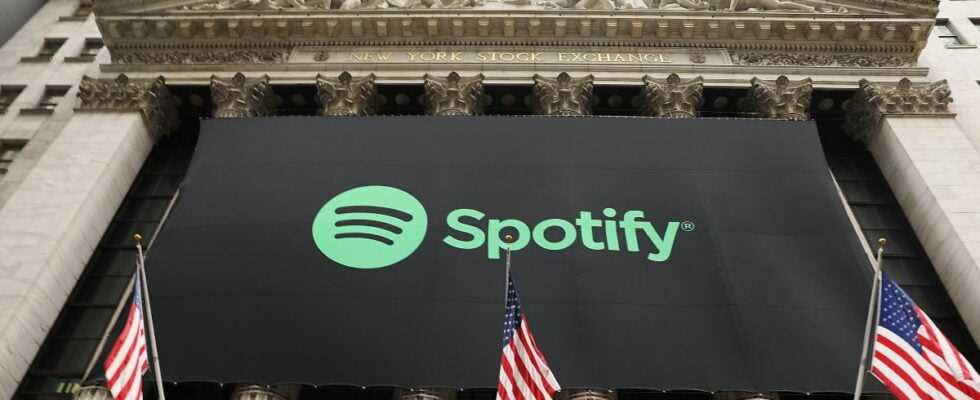Spotify now claims 406 million users, including 180 million paying subscribers. But the deceleration of growth is confirmed and the forecasts of the Swedish giant have been sanctioned on Wall Street.
In the midst of the controversy around Joe Rogan, accused of conveying disinformation about Covid-19 in his podcasts, Spotify announced that it had passed the milestone of 400 million active users, to 406 million, including 180 million paying users. While these figures remain impressive, the Swedish music streaming giant’s slowing growth is causing concern.
The number of active users increased by 18% year-on-year, while the number of paying subscribers increased by 16% over the same period. A slowdown in acquisition rates confirmed by the Scandinavian group’s forecasts for the first quarter of 2022: Spotify hopes to attract 12 million additional users, including 3 million paying subscribers. The deceleration in growth is confirmed and these forecasts were immediately sanctioned on Wall Street, where the title of the Swedish giant lost, on Wednesday, nearly 10% in electronic trading after the close of trading.
Spotify still in search of profitability
Financially, Spotify posted $10.9 billion in full-year 2021 revenue, up 24%, but the company is still in the red. It conceded $38.4 million in losses last year, compared to $664 million in 2020. And the trend should not be reversed between January and March, since the group led by Daniel Ek is aiming for a gross margin of 25% in the first quarter, which kills in the bud any hope of generating an operating profit. Regarding the last quarter of 2021, the music streaming platform saw its revenues increase by 24%, to 3 billion dollars, for a loss of 44.1 million.
The results for the first quarter of the year will provide an opportunity to observe the consequences of the Joe Rogan affair on Spotify’s performance. Faced with the challenge led by Neil Young, the Swedish platform reacted by announcing measures against disinformation on Covid-19, in particular with the addition of links to factual and scientifically sourced information on the pandemic. It remains to be seen whether this will be compelling enough in the eyes of Spotify-hosted users and artists. The stakes are high as the group has invested heavily in podcasts in recent years. Spotify is, of course, far from the sulphurous image that sticks to Meta (Facebook), but this controversy gives it a taste of the American giant’s daily life…
